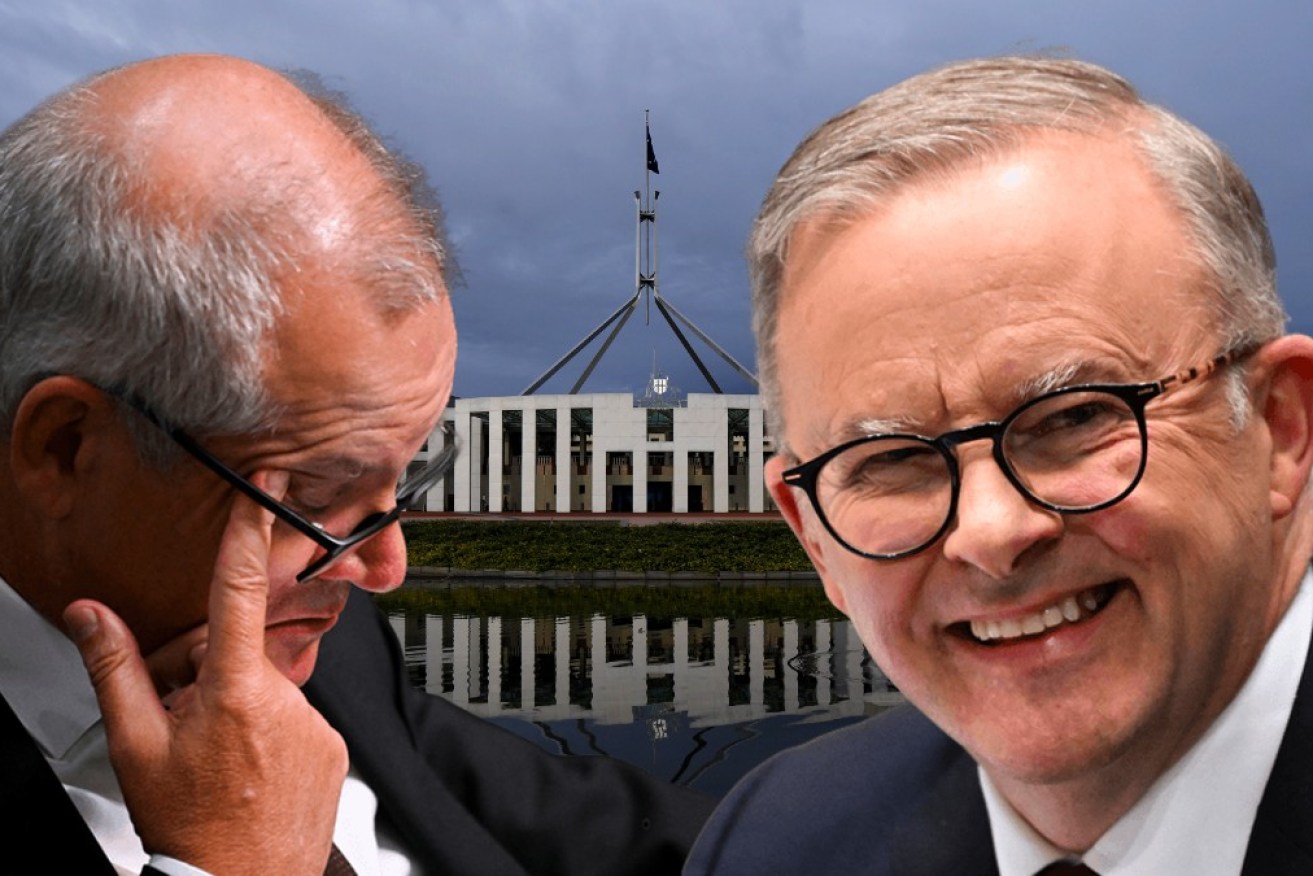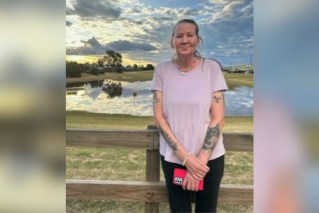Anthony Albanese has been revealed as Labor’s most popular leader since Kevin Rudd while Scott Morrison was so disliked he rated below Greens leader Adam Bandt.
Australia’s largest review of the 2022 federal election found Mr Morrison was the least popular major party leader in the study’s 35-year history.
Mr Albanese rated more favourably than Mr Morrison in eight of nine leader characteristics, with the biggest differences in perceptions of honesty, trustworthiness and compassion.
Greens leader Adam Bandt was rated more favourably than the former prime minister and Liberal leader.
But despite Mr Albanese’s standing, that didn’t stop almost one in three voters casting their ballot for minor parties or independent candidates.
That was the highest number of voters abandoning the major parties in almost a century and switching to minor parties like the Greens and teal independents.
However, most people who backed the teals were tactical Labor and Greens voters, with fewer than one in five having previously voted for the coalition.
The study of the election, won by Labor, was undertaken by the Australian National University and Griffith University.
It comes as the latest Newspoll revealed a surge in support for Mr Albanese as preferred prime minister.
Satisfaction with Mr Albanese’s performance rose to a record high with a three-point gain to 62 per cent, while those saying they were dissatisfied fell four points to 29 per cent.
Seismic shift
Co-author of the joint ANU-Grifith University study Ian McAllister said the 2022 federal election saw a “large-scale abandonment” of major political parties.
“The vote for the two major parties fell to historic lows in the 2022 election,” Professor McAllister said.
“The key beneficiaries of this seismic shift in voting behaviour were the Greens and independent candidates.”
He said Australian voters were now less rusted on to the major parties and the trend was likely to grow.
In 1967, 72 per cent of voters said they always voted for the same party.
This year, the figure dropped to a record low of 37 per cent.
Study co-author Sarah Cameron said the advent of the teals, who ran a well-funded and organised campaign, had given disgruntled voters a viable alternative to the major parties.
“These [teal] campaigns tapped into frustrations with the incumbent coalition government on issues where they were perceived as weak, including climate change, political integrity, and gender equality,” she said.
But Dr Cameron noted the ongoing success of the teals would depend on how much they could create a “distinct political identity” to carry to the 2025 federal election.
Over the past three decades, the survey has found an average of 13 per cent of voters casting their ballots based on party leadership, rather than policies.
This year, the figure was 15 per cent for Labor voters, well above the four to six per cent recorded for former leader Bill Shorten at the 2016 and 2019 elections.
The full report will be launched in Canberra on Monday.
Albanese surges: Newspoll
Labor leader Anthony Albanese has enjoyed a surge in support as preferred prime minister, the latest Newspoll shows.
But Opposition Leader Peter Dutton suffered a three-point decline in his satisfaction ratings to 36 per cent.
Those dissatisfied with Mr Dutton’s performance dropped from 46 per cent to 45 per cent.
Labor’s primary vote has lifted a point to 39 per cent while the Coalition remains unchanged on 35 per cent, according to the final Newspoll survey for the year.
The result for Labor is is more than six points stronger than its election result of 32.6 per cent, while the Coalition’s result is almost a point down on its election tally of 35.7 per cent.
The two-party-preferred split between the major parties was unchanged at 55-45 per cent in Labor’s favour.
The Greens were unchanged with a primary vote of 11 per cent, Pauline Hanson’s One Nation was on 6 per cent while Clive Palmers’s deregistered United Australia Party attracted just 1 per cent.
Other minor parties, including the teal independents, dropped one point to 8 per cent, the Newspoll showed.
-with AAP










